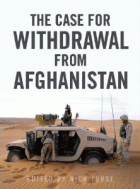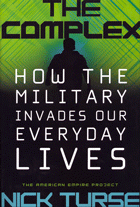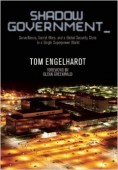If you don’t happen to be part of Donald Trump’s base and you’re a member of the “fake media,” it’s a commonplace to assume that our president is a creature of impulse, a giant id with hardly rhyme, no less reason for what he does. News headlines and those of opinion columns tell the story: “Trump is incapable of seeing past his own ego”; “The Potemkin policies of Donald Trump, the simplest summary of White House economic policy to date is four words: there is no policy”; “World Leaders have figured it out: you can play America by playing Trump’s ego”; “Quick takes: ‘Trump is pure raging authoritarian id’”; “America must deal with Donald Trump, the first rogue president”; “Donald Trump is proving too stupid to be president.” Let me stop there, but believe me, I wouldn’t have to. And whether you’re of the left, the center, or (as in several cases above) the right, you would undoubtedly have a point if you had written such pieces, given the mad spectacle of these months. Still, it might be worth thinking of such headlines less as a commentary on that spectacle and far more as part of it. These days, reporters and pundits, addictively focused on The Donald, increasingly seem like but another part of the Trumpian id released upon the world.
And since Donald Trump has, after his own fashion, smashed the ship of state directly into that same media and changed the landscape of our world of “information,” he’s also made an endless range of journalists and pundits into something new: actors on his planet. If you don’t believe me, watch Wolf Blitzer “interviewing” -- which means mostly ranting to -- Senator Rand Paul, who is defending the president, and tell me that we’re not in a new id-ified world of reportage.
In such a world of id-sters, it’s also possible that something important is being missed. Perhaps the way to think about it (and our president) is in this fashion: if there’s madness to his method (and there is), that doesn’t mean that there isn’t method to his madness. Read TomDispatch regular Michael Klare today and tell me that isn’t possible. Klare suggests that, when it comes to global policy in relation to Russia, China, and the European Union, there has always been a distinct Trumpian method to those mad displays of his. Tom
Entering a 1984 World, Trump-Style
Or Implementing the Sino-Russian Blueprint for a Tripolar World Order
By Michael T. KlareThe pundits and politicians generally take it for granted that President Trump lacks a coherent foreign policy. They believe that he acts solely out of spite, caprice, and political opportunism -- lashing out at U.S. allies like Germany’s Angela Merkel and England’s Theresa May only to embrace authoritarian rulers like Russia’s Vladimir Putin and North Korea’s Kim Jong-un. His instinctive rancor and impulsiveness seemed on full display during his recent trip to Europe, where he lambasted Merkel, undercut May, and then, in an extraordinary meeting with Putin, dismissed any concerns over Russian meddling in the 2016 American presidential election (before half-walking his own comments back).
“Nobody knows when Trump is doing international diplomacy and when he is doing election campaigning in Montana,” commented Danish defense minister Claus Hjort Frederiksen following the summit. “It is difficult to decode what policy the American president is promoting. There is a complete unpredictability in this.”
While that reaction may be typical, it’s a mistake to assume that Trump lacks a coherent foreign-policy blueprint. In fact, an examination of his campaign speeches and his actions since entering the Oval Office -- including his appearance with Putin -- reflect his adherence to a core strategic concept: the urge to establish a tripolar world order, one that was, curiously enough, first envisioned by Russian and Chinese leaders in 1997 and one that they have relentlessly pursued ever since.
[Note for TomDispatch Readers: There’s no way I can thank you enough for your remarkable response to my recent summer appeal for funds to keep TomDispatch rolling along. You're simply the best! If any of you meant to send in a few dollars but forgot, check out our donation page and note that signed, personalized copies of John Feffer's dystopian novel Splinterlands are still available (along with my new book, A Nation Unmade by War, and so many other striking titles) to anyone willing to donate $100 ($125 if you live outside the United States). Believe me, it's you who keep TD rolling along! Tom]
September 11, 2001, was the day that "changed everything.” And indeed, in New York City and elsewhere, it was hard not to feel just that. Unfortunately, the top officials of the Bush administration took advantage of that deep sense of shock (and awe) to advance a global shock-and-awe program all their own, including the invasions of Afghanistan and Iraq that launched 17 years of non-stop war, refugee crises, and so much else. And the world did change. Sadly, it changed in ways that Osama bin Laden, despite his hijacked air force and the damage it inflicted on iconic American buildings (and the thousands of people in them), would have been utterly incapable of accomplishing himself.
You might say that from September 12th on -- from the moment the air strikes of a small group of fanatics were greeted as if they had been carried out by a major power, as if it was truly “the Pearl Harbor of the twenty-first century” -- we were in trouble. War was almost instantly declared from the White House (initially on next to no one) and a Global War on Terror launched. In the process, this country was itself hijacked and, in the years to come, dispatched on what might be thought of as a strange American version of a suicide mission that ended up, more than a decade and a half later, with Donald Trump in the White House. Today, TomDispatch regular John Feffer, the invaluable weekly columnist for Foreign Policy in Focus, suggests that Trump’s presidential “doctrine” is, in turn, a kind of suicide mission from hell and who knows, when the plane goes down, just what it will smash into.
Think of this as the dystopian vision of twenty-first-century American life from an author who has already produced a riveting novel, Splinterlands, about the potentially grim fate of this planet. Coming in the fall from Dispatch Books is Frostlands, book two in Feffer's series about how we are, in fact, changing everything. Unfortunately, today’s essay is not fiction. So buckle your seat belt, it’s going to be an unforgettable ride. Tom
The Flight 93 Doctrine
Donald Trump’s Kamikaze Attack on Globalism
By John FefferAs presidencies approach their midpoints, pundits begin the inevitable search for that elusive creature: the doctrine. It’s often a quixotic quest, since presidents rarely boil down their foreign-policy visions -- if they even have them -- to some pithy essence. Then there’s Donald Trump.
Conjuring up the current president’s foreign-policy doctrine is like arguing that the Teletubbies have a theology. After all, this president approaches global affairs the way a teenager with attention-deficit disorder might tackle War and Peace. To call Trump scattershot in his approach would be generous. He doesn’t even have sufficient command of the relevant vocabulary to formulate a doctrine. His linguistic universe, with its “covfefe,” big-league malapropisms, and contradictory pronouncements, often seems to come straight out of Lewis Carroll’s nonsense poem "Jabberwocky."
Yet punditry abhors a vacuum, so the search for some sort of policy coherence never ends. Many observers have suggested that the Trump doctrine, stripped to its musculature, is simply a reassertion of American power in the crudest form. In The Atlantic, for instance, Jeffrey Goldberg canvassed Trump administration officials for their take on the president’s doctrine and concluded that the most succinct formulation for it was: “We’re America, bitch.” Another possibility: forget the doctrine; Trump is merely asserting his own authority in an increasingly empowered executive branch to do whatever comes into his head. In other words, we’re not talking unilateralism but unileaderism.
[Note for TomDispatch Readers: If you’re already a TD subscriber, then yesterday you got my biannual email importuning you for money (my least favorite part of the TomDispatch year and undoubtedly yours, too). But since this site doesn’t take advertising and doesn’t have a secret stream of funds, you’re the ones who really do keep it going. So a million thanks to those of you who have already sent in contributions! As for those of you who are regular readers but don’t get our pieces by email, take just a moment, if you can, to read my message and consider donating by clicking here. Much appreciated. Tom]
The report was devastating -- or would have been, if anyone here had noticed it. "Between 2001 and 2017," it concluded, "U.S. government efforts to stabilize insecure and contested areas in Afghanistan mostly failed." I’m thinking of “Stabilization: Lessons From the U.S. Experience in Afghanistan” put out by the office of the special inspector general for Afghanistan reconstruction, or SIGAR. It focused on 15 years of U.S. efforts to defeat the Taliban and “reconstruct” that country. Issued in late May, it got a few cursory news reports before disappearing into the maw of Trump addiction. But don’t blame The Donald for that. When was the last time -- even before he entered the Oval Office -- that any serious attention was paid here to the longest war in American history, our forever war or “generational struggle” or “infinite war”? When was the last true policy debate on it?
Presidents -- even Donald Trump -- just re-up on coming into office, surge more U.S. troops in, and watch as things devolve. The generals fight; U.S. commanders come and go (the 17th of the Afghan war is just arriving); our European allies ever more wearily support the last superpower on the planet; and things only get worse while SIGAR issues its reports. Even its latest one only ended up recommending yet more military and other efforts at greater cost to “stabilize” that country. There’s a certain pathos to it, even as yet more Afghans die, more lives are ruined or uprooted, and yet more insurgent/terror groups form in that country (and neighboring Pakistan). It has all the charm of watching mice on a treadmill. Recently, for instance, there was a new “insider attack” that took the life of an American serviceman and wounded two others, the first in perhaps a year; the Taliban seemed once again to be gaining ground as Afghan government security forces shrank; British Prime Minister Theresa May, preparing to be kicked in the teeth by President Trump, obsequiously came close to doubling her country’s force in Afghanistan; approximately 15,000 U.S. military personnel (not counting private contractors) continue to serve there; the U.S. air war has been ramped up; the latest Pentagon review of the American effort may soon be launched; and undoubtedly SIGAR has begun to clear the way for its next report.
Meanwhile, in this country, America’s forever wars, which should be on all our minds, have long since largely dropped from public consciousness. There is neither discussion, nor debate, nor protest of any significant sort about them, which is why it seemed worthwhile to ask TomDispatch regular Rebecca Gordon to review America’s wars in the Middle East before a new one, in Iran, can be added to the mix. Tom
Middle East Alliances, Old and New
Confronting “That Part of the World”
By Rebecca GordonMy father and I always had a tacit agreement: “We will never speak of That Part of the World.” He’d grown up in an Orthodox Jewish family in Norfolk, Virginia. His own father, a refugee from early-twentieth-century pogroms in what is now Ukraine, had been the president of his local Zionist organization. A liberal in most things (including his ardent opposition to both of the U.S. wars against Iraq), my father remained a Zionist to his dying day. We both knew that if we were ever to have a real conversation about Israel/Palestine, unforgivable things would be said.
As a child in the 1950s, I absorbed the ambient belief that the state of Israel had been created after World War II as an apology gift from the rest of the world to European Jews who had survived the Holocaust. I was raised to think that if the worst were to happen and Jews were once again to become targets of genocidal rage, my family could always emigrate to Israel, where we would be safe. As a young woman, I developed a different (and, in retrospect, silly) line on That Part of the World: there’s entirely too much sun there, and it’s made them all crazy.
It wasn’t until I'd reached my thirties that I began to pay serious attention to the region that is variously known as the Middle East, the Arab world, or the Greater Middle East and North Africa. And when I did, I discovered how deep my ignorance (like that of so many fellow Americans) really was and how much history, geography, and politics there is to try to understand. What follows is my attempt to get a handle on how the Trump presidency has affected U.S. policy and actions in That Part of the World.
[Note for TomDispatch Readers: A small reminder that, for a donation of $100 ($125 if you live outside the U.S.) to this website, signed, personalized copies of former New York Times sports columnist (and TD jock culture correspondent) Robert Lipsyte’s SportsWorld: An American Dreamland are still available. The Nation magazine’s sports columnist Dave Zirin calls that 1975 work, just reissued with a new introduction, Lipsyte’s “underappreciated masterpiece. Ahead of its time in every way. Nothing less than the most important sports book ever written.” Check out our donation page for the details. Tom]
Give them credit. As TomDispatch’s Nick Turse has so vividly reported over the last decade, America’s previously “elite” Special Operations forces -- once small, specially trained units in a large military -- have now essentially become a military in their own right, all 70,000 of them (larger, in fact, than many national armed forces). And they are more or less everywhere, more or less all the time. They aren’t just “elite” forces anymore; they’re America’s secret military, which, as Turse has shown, is increasingly deployed to something startlingly close to all the countries on the planet (aside from a few obvious ones like Russia, China, Iran, and North Korea). They are raiding and fighting from Syria to Afghanistan, Somalia to Niger. They are training allied special ops types and other forces across the globe. It’s increasingly hard to think of places where they don’t show up, even, for instance, in a rain-soaked cave that recently trapped 12 Thai soccer players and their coach. And here’s the good news: if a bill sponsored by Congressman Richard Hudson, whose North Carolina district includes Fort Bragg (home of U.S. Army Special Operations Command), passes in Congress, the more America’s special operators deploy in combat-like ways to places that the IRS doesn’t consider war zones (but indeed are), the more likely that they and their families will... yep, get a special tax break for their efforts! (War, what is it good for?)
And they aren’t just “operators” anymore. They’re path-breakers in the “science” of war. As they fight terrorists around the globe, for instance, they’re developing “loitering munitions” in their Maritime Precision Engagement program that will act as “suicide drones” (operated from speedboats). Hey, if ISIS, al-Qaeda, and the rest of that crew have their version of suicide drones -- humans with explosives strapped to them, not to speak of off-the-shelf drones -- why shouldn’t the U.S. military have the technological equivalent? Or what about the “talking paper” for which the special ops group that focuses on “psychological operations” already has a prototype? That paper, somewhat thicker than the usual kind and embedded with micro-circuitry, dropped into the jungles or backlands of the planet, should prove a perfect way to deliver a 30-second recorded message to illiterate enemy troops in some embattled country about how to defect or surrender.
But let Turse take over the story now and, in his latest update on the spread of Washington’s special operators and the wars that seem to accompany them, fill you in on their latest doings on a planet increasingly made for (and by) them. Tom
Commandos Sans Frontières
The Global Growth of U.S. Special Operations Forces
By Nick TurseEarly last month, at a tiny military post near the tumbledown town of Jamaame in Somalia, small arms fire began to ring out as mortar shells crashed down. When the attack was over, one Somali soldier had been wounded -- and had that been the extent of the casualties, you undoubtedly would never have heard about it.
As it happened, however, American commandos were also operating from that outpost and four of them were wounded, three badly enough to be evacuated for further medical care. Another special operator, Staff Sergeant Alexander Conrad, assigned to the U.S. Army’s Special Forces (also known as the Green Berets), was killed.
[Note for TomDispatch Readers: I suggest that, in conjunction with Rajan Menon’s powerful piece on American poverty today, any of you who missed Beverly Gologorsky’s vivid TD post, “What Does Poverty Feel Like?,” should check it out and then pick up a copy of her stunning new Dispatch Books novel, Every Body Has a Story, which focuses on what it felt like for those hit by the Great Recession. Of it, Pulitzer Prize-winning novelist Elizabeth Strout says, “Your heart might be ripped out by this book, but it will get placed back inside with a larger capacity to love and beat on -- what a book, indeed!” Thanks to Haymarket Books, TD readers can still purchase Gologorsky’s novel at half-price by clicking here. Tom]
In these years, much attention has been paid to the rise of the national security state and little indeed to what TomDispatch regular Rajan Menon calls the national (in)security state. The Trump administration and a Republican Congress have, of course, given a remarkable gift, a tax “reform” bill, to the already fabulously wealthy and are now hard at work slashing government funds for those in need. In addition, they are once again trying to cripple medical care for ordinary Americans by going after the Affordable Care Act (aka Obamacare) -- “halting billions of dollars in annual payments required under the law to even out the cost to insurers whose customers need expensive medical services.” Having vastly increased future budget deficits with that tax bill, Republicans in Congress are now promising to solve the problem by going after Social Security, Medicare, and Medicaid. And keep in mind that this is already a country in which three men (Bill Gates, Jeff Bezos, and Warren Buffett) have as much wealth as the bottom half of society, while inequality has reached Gilded Age levels with more to come.
As it happens, Philip Alston, United Nations special rapporteur on extreme poverty and human rights, recently paid some rare attention to American inequality in an up-close-and-personal way. He took a tour of poverty zones in the richest nation on the planet, some within sight of soaring scenes of incredible wealth. In the process, he grimly recorded the rise of extreme poverty (particularly among the young). Here’s just a taste of what he found: “A shockingly high number of children in the U.S. live in poverty. In 2016, 18% of children -- some 13.3 million -- were living in poverty, with children comprising 32.6% of all people in poverty. Child poverty rates are highest in the southern states, with Mississippi [and] New Mexico at 30% and Louisiana at 29%.” Note that, in part as a response to Alston’s report -- how dare he focus on poverty and human rights in America! -- the Trump administration recently withdrew from the U.N. Human Rights Council.
Today, Rajan Menon explores what might be thought of as the deep state of national (in)security in America. It’s a sordid story and, in the age of Trump, it's undoubtedly just the preface to a tragic history still to come. Tom
National (In)Security
In the United States of Inequality
By Rajan MenonSo effectively has the Beltway establishment captured the concept of national security that, for most of us, it automatically conjures up images of terrorist groups, cyber warriors, or “rogue states.” To ward off such foes, the United States maintains a historically unprecedented constellation of military bases abroad and, since 9/11, has waged wars in Afghanistan, Iraq, Syria, Libya, and elsewhere that have gobbled up nearly $4.8 trillion. The 2018 Pentagon budget already totals $647 billion -- four times what China, second in global military spending, shells out and more than the next 12 countries combined, seven of them American allies. For good measure, Donald Trump has added an additional $200 billion to projected defense expenditures through 2019.
Yet to hear the hawks tell it, the United States has never been less secure. So much for bang for the buck.
For millions of Americans, however, the greatest threat to their day-to-day security isn’t terrorism or North Korea, Iran, Russia, or China. It’s internal -- and economic. That’s particularly true for the 12.7% of Americans (43.1 million of them) classified as poor by the government’s criteria: an income below $12,140 for a one-person household, $16,460 for a family of two, and so on... until you get to the princely sum of $42,380 for a family of eight.
Savings aren’t much help either: a third of Americans have no savings at all and another third have less than $1,000 in the bank. Little wonder that families struggling to cover the cost of food alone increased from 11% (36 million) in 2007 to 14% (48 million) in 2014.





















